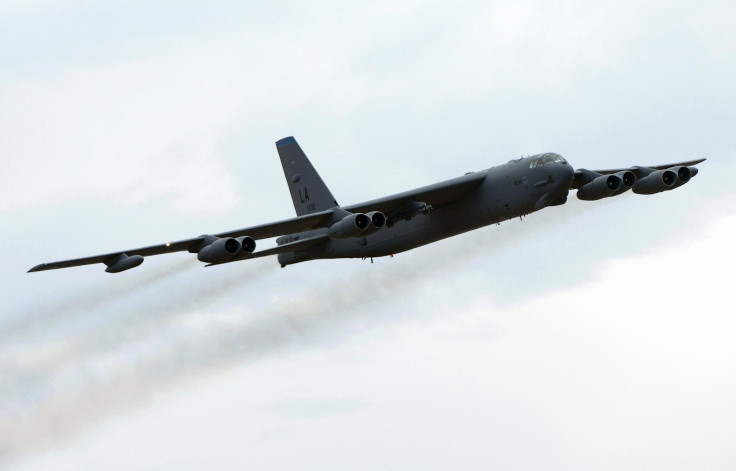Amid Rising China Tensions, US To Deploy Nuclear-Capable B-52 Bombers In Australia: Report
KEY POINTS
- The U.S. had also earlier this year deployed four B-52s to its Andersen Air Force base in Guam
- Expansion of the Tindal air base in Australia's Northern Territory is expected to cost up to $100 million
- The decision to put B-52s in Australia will be a warning to Beijing, says an expert
Amid growing fears of a confrontation with China over Taiwan, the U.S. has drawn up a detailed plan to deploy up to six nuclear-capable B-52 bombers to northern Australia — a move that is expected to provoke Beijing.
According to a report by ABC News' Four Corners, the U.S. has drawn up a plan to build a "squadron operations facility" for six B-52s along with an adjoining maintenance center and a parking area for the giant aircraft at Tindal air base, about 300 km (190 miles) south of Darwin, the capital of Australia's Northern Territory.
The B-52s are long-range heavy bombers, considered to be the backbone of the U.S. Air Force. They are capable of performing a variety of missions, including nuclear and conventional bombing alongside maritime surveillance. The U.S. had also earlier this year deployed four B-52s to its Andersen Air Force base in Guam.
As per the ABC News report, the expansion of the Tindal air base is forecast to cost up to $100 million.
Last year, the U.S., the U.K., and Australia announced a historic AUKUS security pact in the Asia-Pacific, which provided Australia with the technology to build nuclear-powered submarines for the first time.
These developments come amid reports that China may look to pursue a more aggressive posture against Taiwan and across the South China Sea over which Beijing lays claim. Chinese President Xi Jinping, who recently secured an unprecedented third term in office, has vowed the use of force, if peaceful means didn't work, to bring Taiwan under Beijing's control.
"Resolving the Taiwan question is a matter for the Chinese, a matter that must be resolved by the Chinese. We will continue to strive for peaceful reunification with the greatest sincerity and the utmost effort, but we will never promise to renounce the use of force, and we reserve the option of taking all measures necessary," Xi said in his address to delegates at the 20th party congress on Oct. 16 in Beijing.
The decision to put B-52s, having a combat range of about 14,000 km, in Australia will be a warning to Beijing, amid mounting fears of an assault on Taiwan, Becca Wasser, a senior fellow at the Washington, D.C.-based Center for a New American Security, told the ABC.
Beijing has warned that Washington's pro-Taiwan, anti-Beijing approach could disrupt U.S.-China ties and that China could invoke its Anti-Secession Law to seek reunification with Taiwan by force.
A top U.S. Air Force General had recently called for Washington to seriously consider the threats that Beijing may use nuclear weapons, especially in a confrontation over Taiwan, and only a credible nuclear deterrent would stop it from doing so.

© Copyright IBTimes 2024. All rights reserved.





















